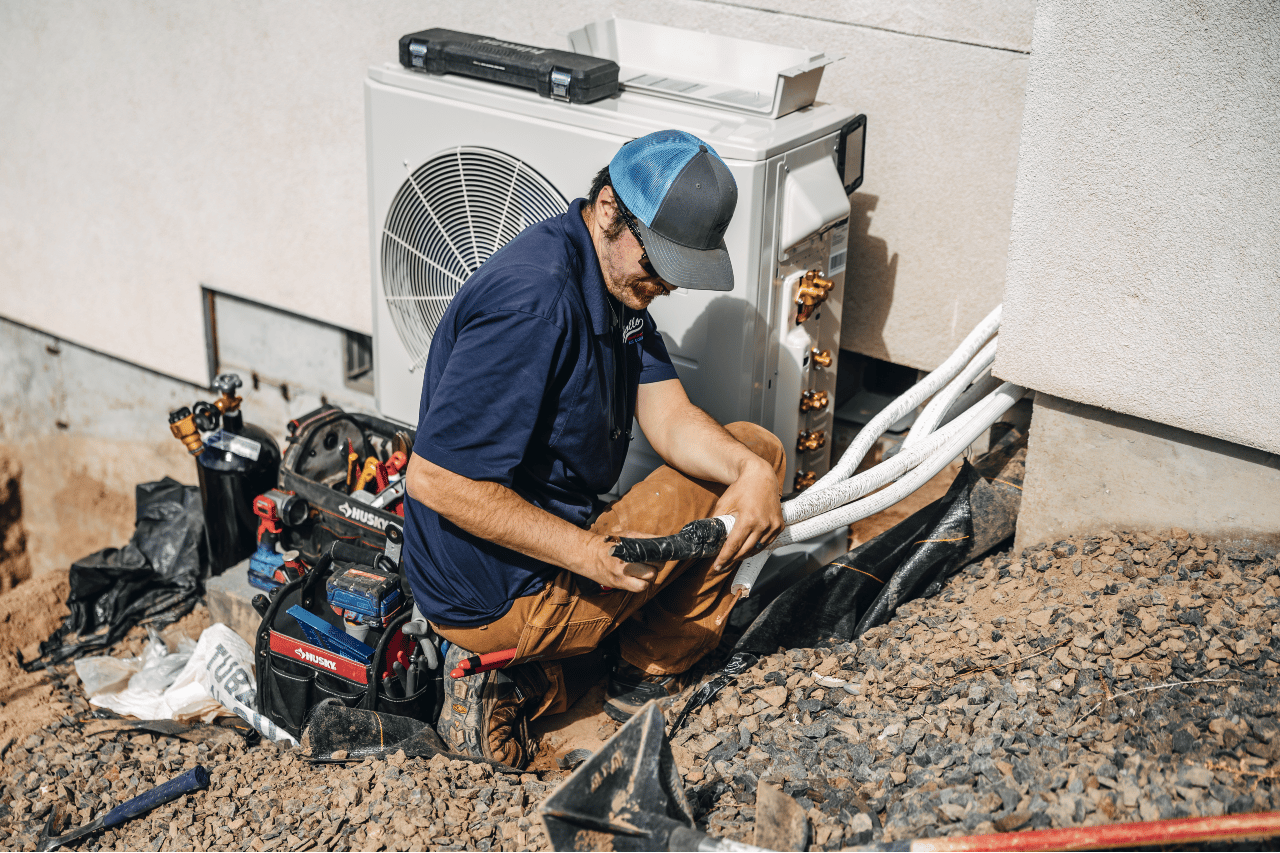The Difference Between HVAC and Furnace
As a new or potential homeowner learning what it means to manage a residence, the internal systems of a house can be confusing. Today, we will make it simple and break down the details of a key system in your home. Keep reading for an in-depth explanation of the difference between HVAC and furnace systems, from functionality to cost to the installation.
What is an HVAC System?
An HVAC system is described by its very name, Heating, Ventilation, and Air Conditioning. The three different units are combined into one system for homeowners to regulate the temperature and humidity within their homes.
Most commonly, HVAC systems are found in homes located in regions where temperatures swing dramatically. Such a system allows homeowners to heat their homes during cold winters, ventilate them to prevent humidity damage, and cool their homes in scorching summers.
What is a Furnace?
A furnace, on the other hand, is a more straightforward system that only provides heat to regulate temperatures. In the Pacific Northwest, it is common for homeowners on the west side of the mountains to only have a furnace within their homes since their environment often features mild temperatures throughout winter and summer.
The Differences Between HVACs and Furnaces
How Does it Work?
A thermostat controls both HVAC and furnace systems. The thermostat is a small device frequently mounted on a wall somewhere in the home. The device detects the rise and fall in temperatures and compares it to the system’s programmed preferences, which can be modifed by the homeowner to suit their specific needs. When the temperature goes outside the system’s programmed preferences, it signals to the HVAC or furnace system that action is needed.
This is where the HVAC and furnaces differ the most. Remember, furnaces only supply heat. Therefore, when the thermostat reads a temperature under the programmed preferences, it sends a signal to the furnace to heat the home using oil or gas. The heated oil or gas is distributed throughout the house through a network of pipes that connect to floor or wall units, providing heat. However, if the temperature goes above the system’s preferences, nothing happens.
This is where HVACs are preferred by most homeowners. HVAC systems respond when the temperature goes both below and above the programmed preferences. The HVAC will react much like a furnace when the temperature drops below the programmed preferences.
Unlike a furnace, however, the HVAC will also respond when the temperature rises above the programmed preferences. When this happens, the thermostat sends signals to the coils. The coils rotate, sucking in the home’s hot air and sending it out of the home while the ventilator sucks in clean air and distributes it back into the house for cooling. Such systems usually also feature a dehumidifier to control humidity levels.
Costs of HVAC vs. Furnaces
HVAC System Costs
HVAC systems are more costly than a furnace due to the fact that they are a more complex system, with three or four different components that each serve a different purpose. Homeowners can expect an HVAC system to cost anywhere between $4000 to $7000, depending on the model.
This is why you often see homeowners on the west side of the mountains choosing furnaces over HVAC units; it simply isn’t worth the cost to have air-conditioning for the three weeks during the summer they might need it. On the contrary, here on the east side of the mountains, it is critical for the health and safety of one’s family and home to have an HVAC because we experience extreme summer temperatures.
Furnace Costs
Furnaces can range anywhere from $700 to $3200, depending on the type of furnace, size, and brand. As a short explanation, there are three primary types of furnaces: natural gas, electric, and oil. Each type has its own pros and cons depending on your location, home type, and product availability. It is always essential to speak with a professional before choosing a furnace style to ensure you get the right type for your home.
Installation Estimates
As we are sure you can expect by this point, HVAC systems cost more to install than furnaces due to their complexity. It takes extensive training and experience to properly install an HVAC unit successfully, with each component running at top efficiency.
On the other hand, furnaces are quite easy and quick to install. However, it is vital to keep in mind that the type of furnace will affect the installation costs. For example, natural gas furnaces tend to be cheaper to install, whereas oil furnaces are on the more expensive side.
Schedule a Service Request with Apollo
Is your HVAC or furnace system not performing at peak efficiency, or are you noticing concerning factors like leaks or noises? If so, we recommend booking a service request with us immediately. Keep in mind that such units can pose a severe health and safety risk to your home and family if they fail, so it is wise to get them fixed as soon as a problem occurs.
Additionally, all HVAC and furnace units should be serviced once a year as preventive maintenance. Rather than waiting until you have a problem, you can combat it before it starts. We recommend the furnace owners get their inspection in early fall, before the cold season, and HVAC owners get it in early spring before the heat of summer arrives.
To complete your service request with Apollo Heating & Air Conditioning, please complete our form, and a customer representative will get back to you within 24 hours of a business day. In the event of an emergency, please call (509)-586-1104 for service.





